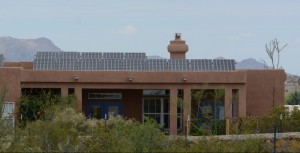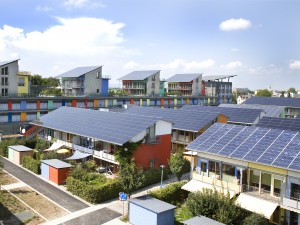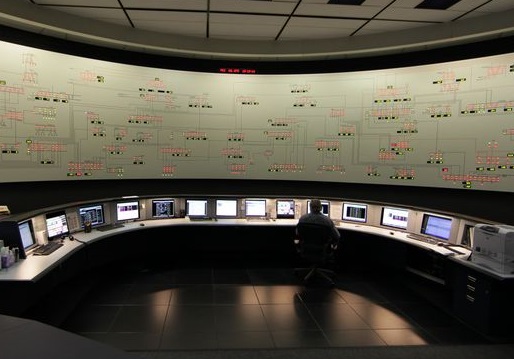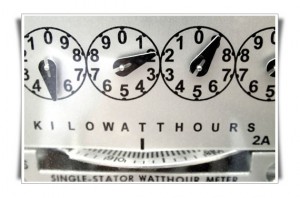6 item(s) were returned.
Communications Director
Vote Solar
In May, the California Energy Commission unanimously approved the nation’s first commitment to putting solar on qualifying new home construction starting in 2020 – a move that’ll be good for our cost-of-living and our climate alike. Building solar on new homes is consistent with California’s zero net energy goals for new buildings, and it’s a great way of getting rooftop solar built cheaply for customers. When solar PV is installed at the time of construction, you get economies of scale and save big on non-hardware costs like customer acquisition, permitting and financing. Assuming modules are 40 cents/W and the other… [more]
View InsightSolar power generation in the U.S. is on the rise with an added 7.3 gigawatts (GW) of total installed capacity in 2015. Demand for solar is projected to increase as much as 119% in 2016. Some believe that growth in the U.S. solar market is primarily influenced by federal and state subsidies and tax credits, such as the Solar Investment Tax Credit (ITC). The ITC is a 30% federal tax credit for residential and commercial solar projects available through 2019. Until recently, state incentives have also impacted the growing U.S. solar market. Nationwide, states have started rolling back tax credits… [more]
View InsightDirector of Energy Policy & Senior Fellow
The R Street Institute
The traditional regulated monopoly model for electric utilities is outdated. It limits innovation, product and service development in the power sector. One example is the regulatory treatment of distributed energy resources (DER). In 46 states and D.C., customers are permitted to sell back excess energy generated from DERs through a process called net metering. As DERs like battery storage and rooftop solar penetrate the market, they increasingly expose cross-subsidies inherent in traditional utility rate design. Standard net metering policies attempt to serve a diverse customer base within this rigid framework and cannot properly capture the costs and benefits to the… [more]
View InsightSenior Regulatory Attorney
Environmental Defense Fund
Two seemingly unrelated announcements drew much attention in the electric utility industry recently. First, the Edison Electric Institute and the Natural Resources Defense Council jointly recommended changing how utilities should be regulated. Second, Duke Energy announced it will sell 13 Midwest merchant power plants. These announcements are actually related, and arise because the traditional utility business model is crumbling, due to several factors: Load growth has declined, due to a slowing economy and greater use of renewable energy and energy efficiency. Utilities are no longer able to obtain economies of scale by building ever-larger plants. New regulations have resulted in… [more]
View InsightVice President, US Retail Regulatory Strategy
National Grid, US
With the exception of EPA rulemaking and stimulus, federal energy policy has been at a virtual standstill since EISA 2007. That makes state legislatures and regulators the focal point for new ideas. California, with its aggressive efficiency and renewable targets, has continued to be a key market for addressing the financial and operational costs of configuring a new energy system. In a previous life, I remember an industry colleague’s advice on drafting energy legislation; “create principles regulators can tweak rather than inflexible legislative fiat”. This expression comes to mind as a litmus test for California’s new landmark energy legislation; Assembly… [more]
View InsightA battle is heating up in California regarding the State’s net metering policy as the California Public Utilities Commission is reviewing the policy’s costs and benefits. Net metering is an incentive that allows consumers who produce their own electricity, from rooftop solar panels for example, to sell excess back to the grid (often) at full retail price. Opponents of net metering contend that the volumetric retail rate includes fixed costs that are essential to the long-term stability of our utility infrastructure. They claim that net metering customers get the benefit of using the grid, but pay less to do so… [more]
View Insight




